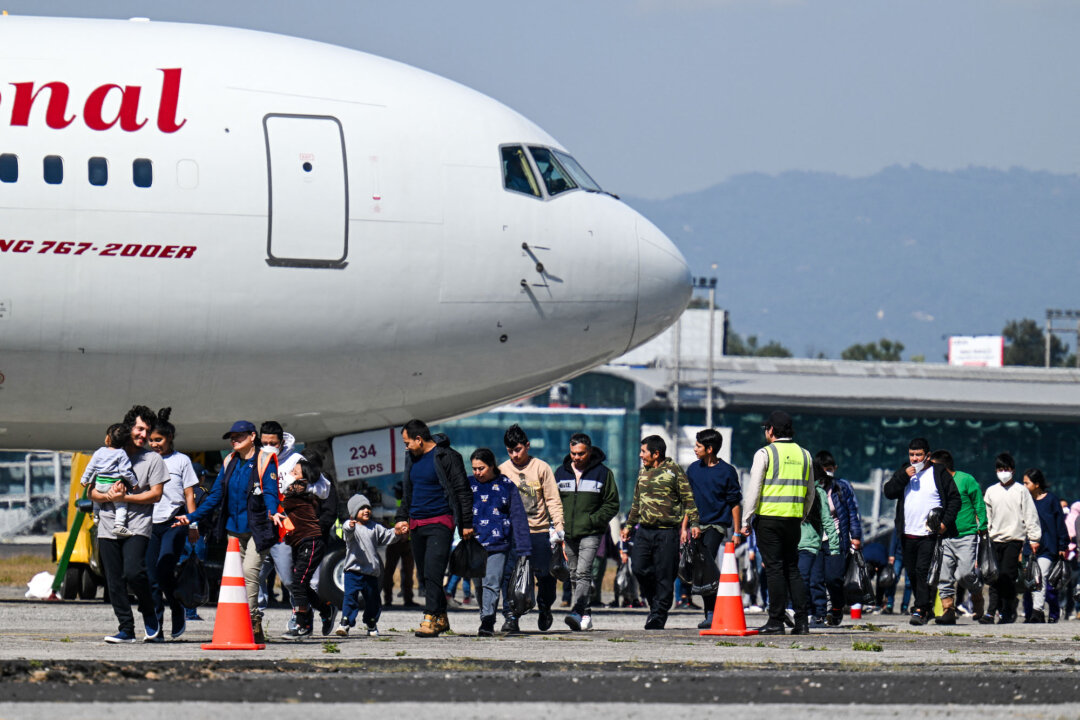‘We will receive our fellow citizens on civilian planes, without treating them like criminals,’ President Gustavo Petro said.
Colombian President Gustavo Petro confirmed Sunday he blocked military flights from the United States that were carrying deported Colombian nationals.
Last week, President Donald Trump took a series of actions to ramp up enforcement against illegal immigrants, authorizing U.S. military assets to assist in deportations. The White House also confirmed on social media that deportations started late last week.
“The U.S. cannot treat Colombian migrants as criminals,” Petro wrote in a post on social media platform X on Sunday, according to a translation from Spanish.
“I deny the entry of American planes carrying Colombian migrants into our territory. The United States must establish a protocol for the dignified treatment of migrants before we receive them.”
In a separate post, Petro said that his administration turned away two U.S. flights with Colombian nationals.
“A migrant is not a criminal and must be treated with the dignity that a human being deserves. That’s why I turned back the US military planes that were carrying Colombian migrants,” he wrote on X.
He added that he cannot make Colombian nations “remain in a country that does not want them,” meaning the United States.
“But if that country sends them back, it must be with dignity and respect for them and for our country. We will receive our fellow citizens on civilian planes, without treating them like criminals. Colombia is respected.”
Neither Trump nor his officials in his administration have responded to Petro’s social media statements. The Epoch Times contacted the Department of Defense for comment Sunday.
The Trump administration sent four deportation flights to Mexico on Jan. 23, according to a statement from the White House on X. The Mexican government accepted those flights, press secretary Karoline Leavitt noted, despite reports that the country had blocked a plane.
“This comes in addition to unrestricted returns at the land border, the deportation of non-Mexicans, [and] reinstatement of Remain-in-Mexico,” Leavitt said. “Mexico has also mobilized [30,000] National Guard” troops, she added.
Mexico’s foreign ministry, in a statement late on Jan. 24, said the country had a “very great relationship” with the United States and cooperated on issues such as immigration. “When it comes to repatriations, we will always accept the arrival of Mexicans to our territory with open arms,” the ministry said.
Before taking office, Trump warned both Mexico and Canada that his administration may impose a 25 percent tariff on goods being sent to the United States, respectively, if either country does not move on securing their borders with the United States, ending illegal immigration, and stopping the flow of drugs into the country.
Last week, Trump told reporters that he may impose a tariff starting Feb. 1.
In the past, U.S. military aircraft have been used to relocate individuals from one country to another, including during the U.S. withdrawal from Afghanistan in 2021.
Aside from the flights, in just his first several days in office, Trump’s administration has stopped refugee arrivals, sent troops to the U.S.–Mexico border, issued an order ending birthright citizenship that was later blocked by a Washington state-based judge, ordered prosecutors to investigate local or state officials who do not comply with the illegal immigration enforcement, and lifted rules restricting immigration enforcement near schools, hospitals, and churches.
U.S. Immigration and Customs Enforcement (ICE) also confirmed on Saturday that it made 286 arrests and lodged 421 detainers targeting illegal aliens. Trump’s border czar, Tom Homan, has often said that ICE would prioritize illegal immigrants who have a violent criminal history or who are considered threats to public safety, but he also warned that there will be collateral arrests.
Reuters contributed to this report.

